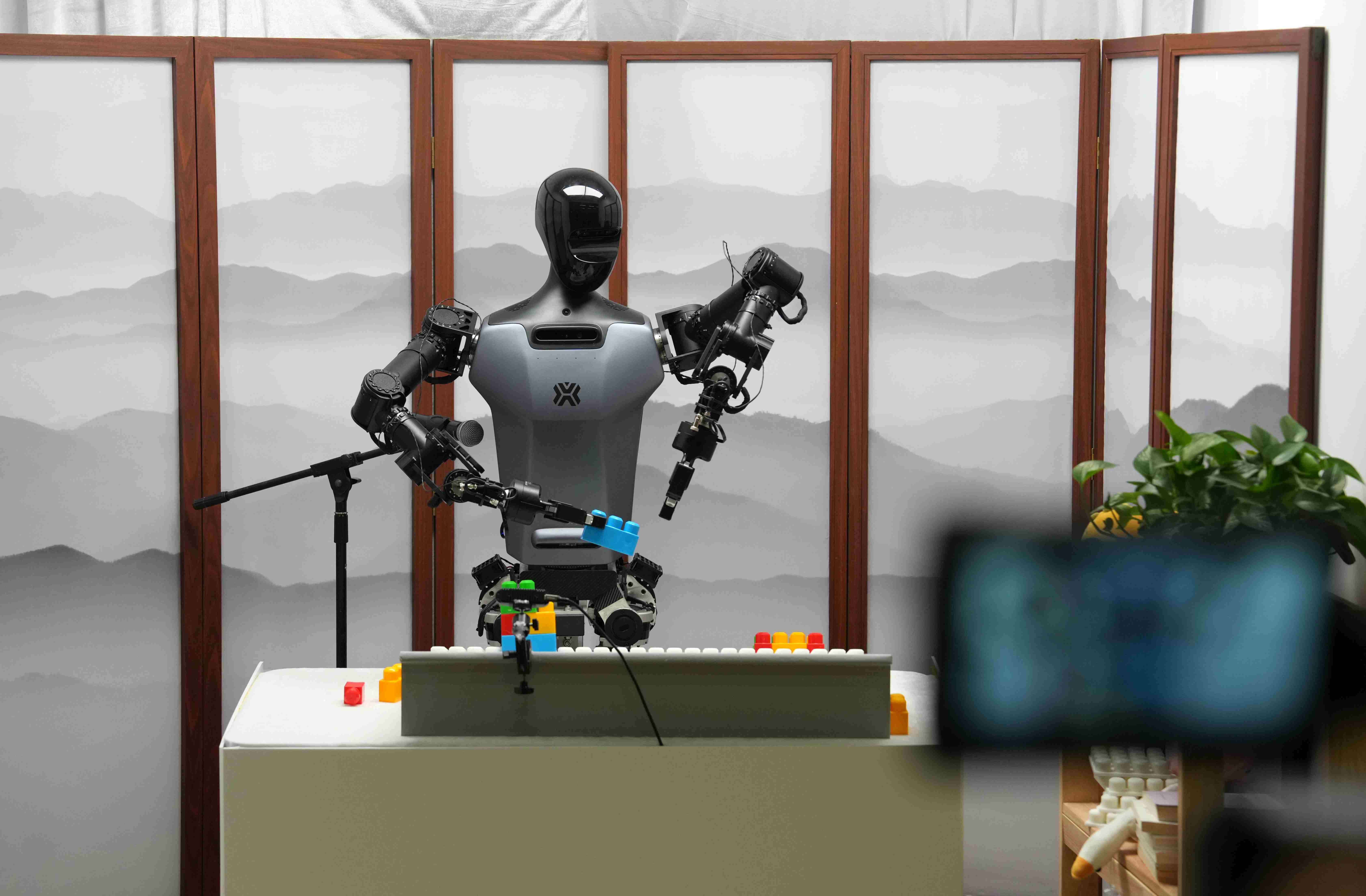
In the current era of rapid technological advancement, on July 27th, Sogou Technology released the "Quneng" embodied intelligence platform at the conference. This platform can provide perception, visual navigation and multi-modal interaction capabilities for robots and other devices. The release of the embodied intelligence platform is like a powerful bomb, causing waves of excitement throughout the global technology sector. This breakthrough in cutting-edge technology is not only an important milestone in the development of artificial intelligence, but also heralds the arrival of a brand new era of intelligence.
Embodied intelligence, in simple terms, is to give artificial intelligence a physical entity, enabling it to interact, perceive and learn with the surrounding environment just like a human being, and then make decisions and take actions. From floor cleaning robots to intelligent driving systems, embodied intelligence has already quietly integrated into our lives. However, the release of this embodied intelligence platform has elevated this technology to a completely new level. Taking the "Quneng" embodied intelligence platform released by Sogou Technology at the 2025 World Artificial Intelligence Conference as an example, it uses Sogou's "Kaiwen" world model as the core engine, relying on powerful computing power support, to endow robots and intelligent devices with strong perception, visual navigation and multimodal interaction capabilities, allowing intelligent terminals to make a big step towards higher levels of autonomy and intelligence.
From the perspective of industrial transformation, the emergence of embodied intelligent platforms is expected to reshape the landscape of multiple industries. In the manufacturing sector, embodied intelligent robots can achieve more flexible, precise and efficient production operations. They not only significantly enhance production efficiency and product quality, but also reduce labor costs and production risks. In the logistics field, embodied intelligent technology can help logistics robots perform full-process automated operations, from goods sorting, handling to delivery, improving logistics efficiency and solving the "last mile" delivery problem. In the medical industry, embodied intelligent devices can assist doctors in surgeries, rehabilitation treatments, and other tasks, providing patients with more personalized and precise medical services. Even in remote medical care, they play a key role, breaking geographical barriers and enabling more people to benefit from high-quality medical resources.
In the field of education, embodied intelligent robots will also bring about new teaching models. They can act as interactive learning companions, providing students with more vivid and personalized learning experiences and stimulating their interest in learning and creativity. Moreover, in service industries such as elderly care and housekeeping, embodied intelligence also has broad application prospects, which can help solve a series of problems brought about by an aging society and improve people's quality of life.
With the release of the embodied intelligence platform, the pace at which artificial intelligence moves from the virtual world to the physical world has accelerated, which has also brought new ideas and directions for technological innovation. It promotes the deep integration of multiple disciplines, with computer science, robotics, cognitive science, neuroscience, and other disciplines intersecting and promoting each other in the research of embodied intelligence, providing new methods for solving complex real-world problems. At the same time, the development of embodied intelligence will also drive the innovation of hardware technology, such as sensors, chips, and robot bodies, which need to be constantly upgraded to meet the requirements of embodied intelligence for perception, computing, and action capabilities.
It is undeniable that the development of embodied intelligence platforms also faces numerous challenges. From a technical perspective, how to enhance the generalization ability of embodied intelligence so that it can operate accurately and stably in complex and ever-changing real-world environments remains an urgent issue to be addressed. Data quality and privacy protection are also key concerns. Embodied intelligence requires a large amount of high-quality data for training, but during the process of data collection and usage, how to ensure the security of the data and the privacy of users requires the establishment of a complete legal framework and technical support system. Moreover, the wide application of embodied intelligence may also give rise to a series of social ethical issues, such as job structure adjustment and human-machine relationships, which require the joint attention and discussion of the entire society.
The launch of the embodied intelligence platform represents a major breakthrough in technological development, opening a door to the future intelligent world for us. Although there are still many challenges ahead, we have reason to believe that with the joint efforts of the global technology community, embodied intelligence will continue to develop and improve, creating a brighter future for human society. We should actively embrace this technological transformation, make early preparations, strengthen research and application, seize the initiative in this technological wave, and enable embodied intelligence to better serve humanity and promote the progress and development of society.

Recently, according to 9To5Mac, the Apple Podcasts app was exposed to have the problem of automatically redirecting unsubscribed programs, and some of the redirected programs were suspected to contain malicious links.
Recently, according to 9To5Mac, the Apple Podcasts app was …
Recently, multiple Federal Reserve officials have publicly …
Ukrainian President Vladimir Zelensky met with French Presi…
In November 2025, South Korean e-commerce giant Coupang was…
On December 2, 2025, the international silver market witnes…
On November 30 local time, a report released by the Stockho…